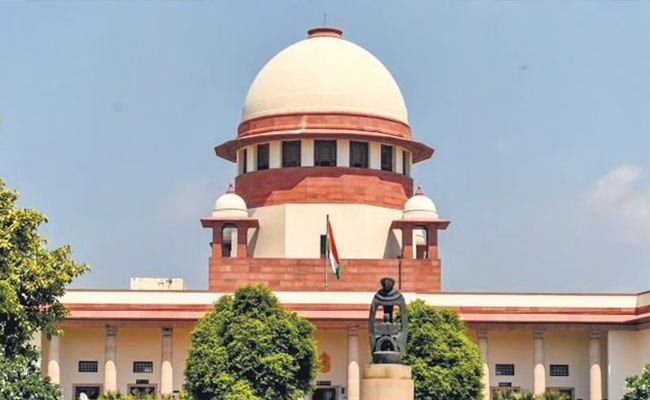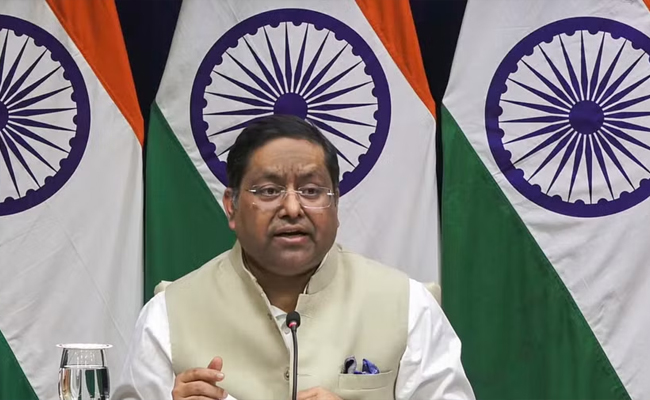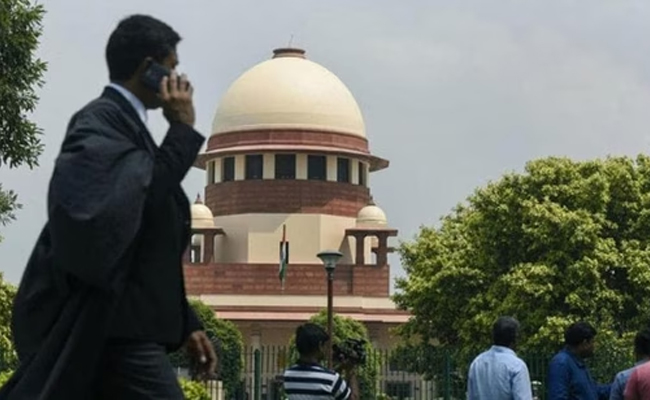Bengaluru (PTI): Opposition BJP on Friday condemned the government's move to make the chief minister the chancellor of the Karnataka State Rural Development and Panchayat Raj (RDPR) University replacing the governor, terming it as an attempt to pollute the higher education system.
State BJP president B Y Vijayendra said this attempt to cut down on the powers of the governor is a conspiracy to upset the constitutional system.
The Karnataka cabinet on Thursday approved a bill, according to which the chief minister will be appointed as the chancellor, replacing the governor at the RDPR University in Gadag.
The governor is the chancellor for all public universities in Karnataka.
Governor Thaawarchand Gehlot currently holds the post.
"With a good intention that politics should not mix in education and as per the intent of the constitution, the Governor who is also the constitutional head of the state is the chancellor of the universities. But the government led by Siddaramaiah (CM), which is engaged in a series of corruption, by abusing its existing powers, is trying to pollute the higher education system," Vijayendra posted on 'X'.
He said the government's move will allow "unnecessary political interference" in the field of rural development studies.
"The Congress government, which has been impatient towards the governor since the beginning, sees him as an enemy to cut down on the powers, and it is a conspiracy to upset the constitutional system. This move of the state government is highly condemnable," he added.
Earlier in September, the cabinet, at a meeting held in Kalaburagi, decided to divest the governor of the power to appoint the vice-chancellor of RDPR University.
Law and Parliamentary Affairs Minister H K Patil on Thursday defended the government's move and said, "It will make the university more active and quick decisions will be taken...this system is there in many states, including Gujarat and Arunachal Pradesh."
Let the Truth be known. If you read VB and like VB, please be a VB Supporter and Help us deliver the Truth to one and all.
New Delhi (PTI): Broken relationships, while emotionally distressing, do not automatically amount to abetment of suicide in the absence of intention leading to the criminal offence, the Supreme Court on Friday said.
The observations came from a bench of Justices Pankaj Mithal and Ujjal Bhuyan in a judgement, which overturned the conviction of one Kamaruddin Dastagir Sanadi by the Karnataka High Court for the offences of cheating and abetment of suicide under the IPC.
"This is a case of a broken relationship, not criminal conduct," the judgment said.
Sanadi was initially charged under Sections 417 (cheating), 306 (abetment of suicide), and 376 (rape) of the IPC.
While the trial court acquitted him of all the charges, the Karnataka High Court, on the state's appeal, convicted him of cheating and abetment of suicide, sentencing him to five years imprisonment and imposing Rs 25,000 in fine.
According to the FIR registered at the mother's instance, her 21-year-old daughter was in love with the accused for the past eight years and died by suicide in August, 2007, after he refused to keep his promise to marry.
Writing a 17-page judgement, Justice Mithal analysed the two dying declarations of the woman and noted that neither was there any allegation of a physical relationship between the couple nor there was any intentional act leading to the suicide.
The judgement therefore underlined broken relationships were emotionally distressing, but did not automatically amount to criminal offences.
"Even in cases where the victim dies by suicide, which may be as a result of cruelty meted out to her, the courts have always held that discord and differences in domestic life are quite common in society and that the commission of such an offence largely depends upon the mental state of the victim," said the apex court.
The court further said, "Surely, until and unless some guilty intention on the part of the accused is established, it is ordinarily not possible to convict him for an offence under Section 306 IPC.”
The judgement said there was no evidence to suggest that the man instigated or provoked the woman to die by suicide and underscored a mere refusal to marry, even after a long relationship, did not constitute abetment.





